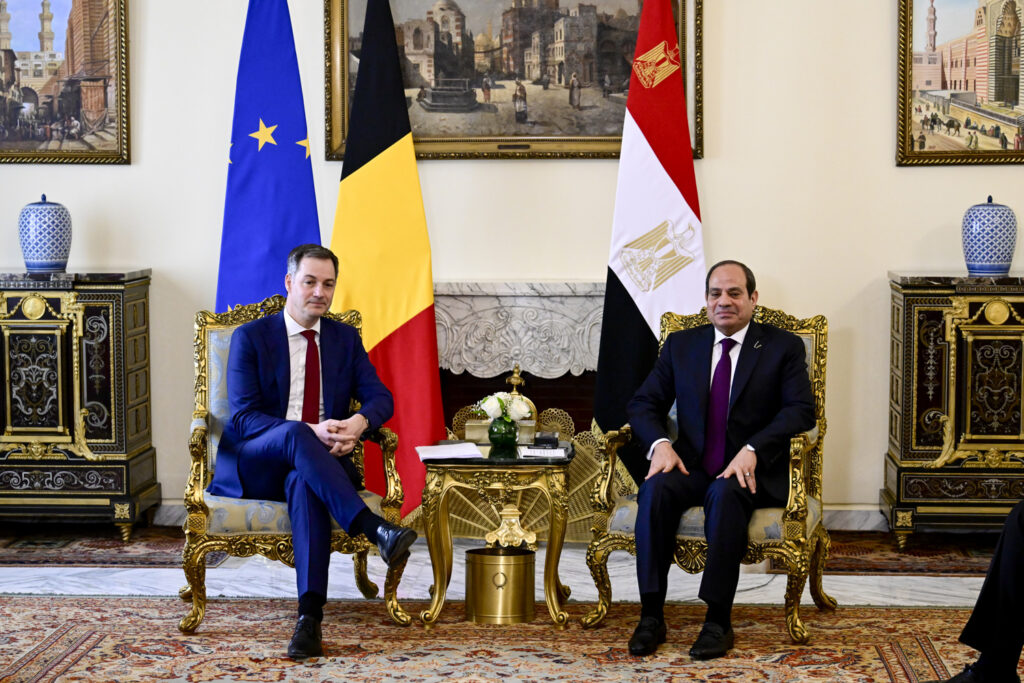The European Union (EU) is due to sign a €7.4 billion ‘comprehensive partnership’ agreement with Egypt, focusing on economic recovery, training, energy, and enhanced migration control.
This agreement, the third of its kind after agreements with Tunisia and Mauritania in recent months, is set to be signed this Sunday in Cairo. European Commission President Ursula von der Leyen, alongside five other European leaders including Belgian Prime Minister Alexander De Croo, have negotiated the deal over several months with Egyptian President Abdel Fattah al-Sissi.
The deal comprises €5 billion in loans – with €1 billion set to be dispensed by end of 2024 – €1.8 billion in investments, €400 million in bilateral project aid, and €200 million in migration-related programme aid, according to a high-ranking official from the European Commission.
Specific areas of cooperation between the EU and Egypt outlined in the accord focus primarily on liquified natural gas (LNG) in an attempt to decrease reliance on Russian gas. The accord also highlights collaboration on security, counterterrorism, and border protection – particularly the southern border due to increasing pressure from the war-torn Sudan.
The migration aspect of the agreement (€200 million), mirrors one signed with Tunisia in July. The EU aims for these migrant origin or transition countries to halt departures and readmit their nationals who are in the EU irregularly.
In recent years, Egypt has become a transit, origin, and destination for migrants and asylum seekers mainly from Libya, Sudan, and the Middle East. This past year, 26,675 Egyptian nationals applied for asylum in the EU countries – a 71% increase from 2022. 12,854 illegal crossings by Egyptian nationals into the EU were discovered in 2023, principally along the Central Mediterranean route.
Deals with regimes
Egypt houses 8 to 9 million displaced people, causing tensions between ‘old and new’ refugees, in addition to those exacerbated by the situation in Gaza. Critics fear that the EU-Egypt partnership is intended to push Palestinian refugees towards Egyptian Sinai.
Like the deal with Tunisia, this partnership is controversial due to President al-Sissi’s authoritarian regime and its human rights infringements. Arriving in Cairo, Prime Minister De Croo met with defenders of basic rights, who seek to tie any direct and indirect EU financial aid to Egypt with clear, public, and measurable conditions in human rights and accountability sectors.
President al-Sissi met the European delegation, comprised of Von der Leyen, De Croo, Cyprus President Níkos Christodoulídis, and the Greek, Italian, and Austrian prime ministers Kyriákos Mitsotákis, Giorgia Meloni and Karl Nehammer, respectively, Sunday afternoon.
"We must do everything within our power to assist Egypt in managing migration and its borders, said Belgium’s Secretary of State for Asylum and Migration, Nicole de Moor (CD&V). "Many Egyptians are leaving their country, the fifth largest source of entries into the EU, and many others are fleeing to Egypt. A solid partnership is more than necessary to not leave them alone in this difficult task," she concluded.

